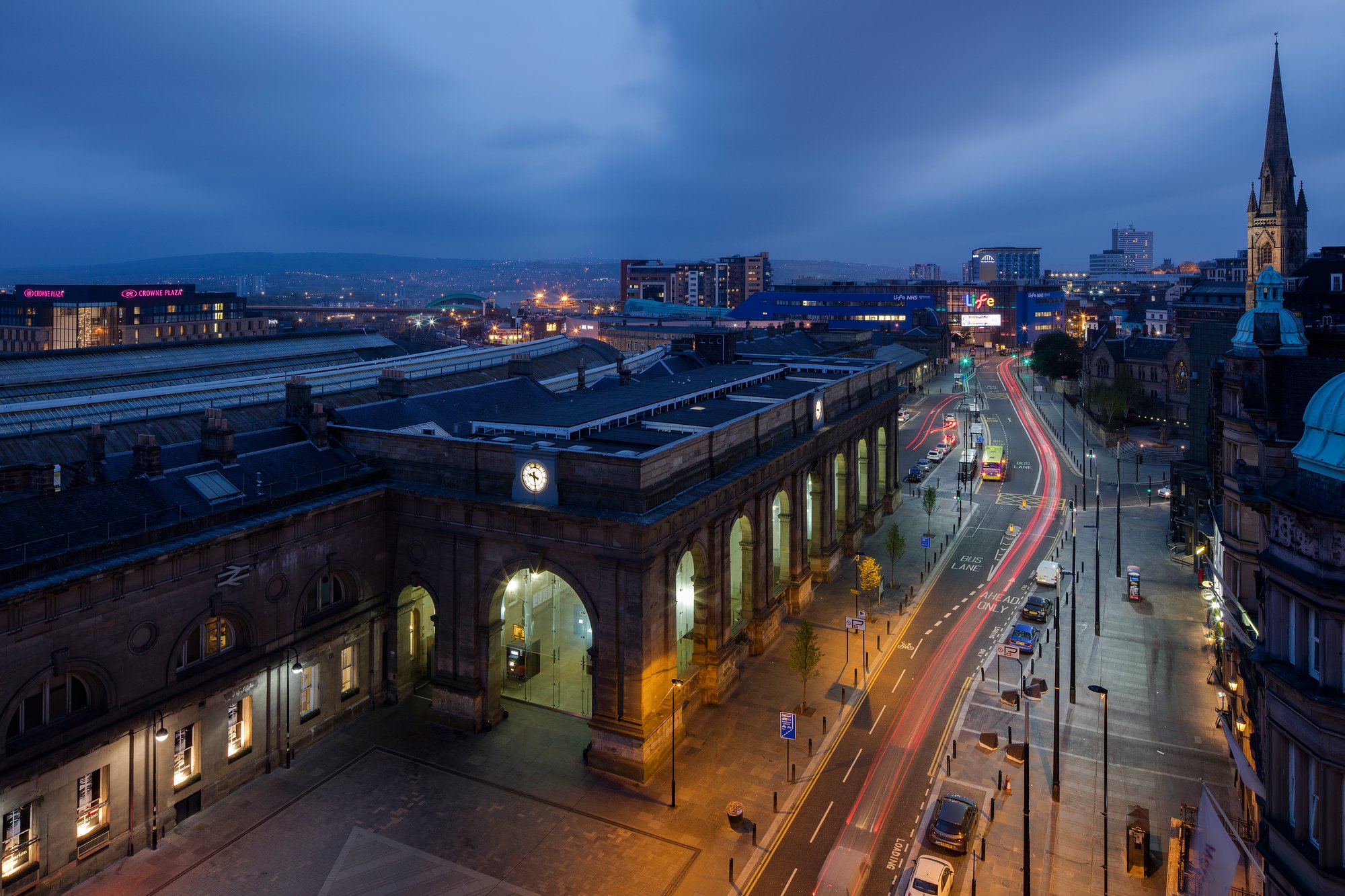.jpg)
Worried about the distance and cost involved in going to university? Perhaps you just want peace of mind that travelling home to see family and friends will be quick and convenient?
It couldn't be easier to get to Newcastle, whether you're travelling by air or sea, driving or taking the train. Newcastle has an international airport, rail connections, an international ferry terminal and plenty of direct road routes to choose from.
It's also easy to explore Newcastle once you've arrived. In fact, our international students are often surprised at how easy Newcastle is to get around, with lots of public transport links that are simple and easy to understand, and many places within walking distance.
Contents:
- How to get to Newcastle by plane
- How to get to Newcastle by train or coach
- How to get to Newcastle by car
- How to get to Newcastle by ferry
How to get to Newcastle by plane
With links to the rest of the UK, Europe and beyond, Newcastle International Airport has direct flights to multiple destinations worldwide.
From the airport, there are lots of transport links to the city centre and surrounding areas including the cheap, quick and hassle-free Metro light rail network. This runs from the airport, across the city to the North East coast, and will have you right on campus within half an hour.
If you're arriving by plane, you might be feeling a little worried about finding your way around Newcastle when you get here. If you're an international student who would benefit from a helping hand, why not consider our Meet and Greet service? We'll welcome you at Newcastle International Airport and make sure your journey to campus is safe.
How to get to Newcastle by train or coach
Fast, frequent services operate between Newcastle Central Station and some of the UK's main cities, including Birmingham, Bristol, Cardiff, Edinburgh, Leeds, Manchester and York. London is also less than three hours away by train.
Close to the city centre, the train station is within walking distance of Newcastle University. It's also well connected to the rest of the region by our Metro and the Quaylink bus service, which connects the city centre with Newcastle's Quayside - a hub for food, art and music.
You can find more information about travelling to Newcastle by train using the below resources:
- National Rail and Trainline - journey planning, live arrival and departure boards for UK stations
- Eurostar - help to plan your journey to us from Europe
If trains aren't for you, or if you're keen to save a little money, then you can get a coach instead. Megabus and National Express both have routes to Newcastle, with the Megabus stopping right on John Dobson Street, a ten-minute walk from Newcastle University campus or a two-minute walk to Monument Metro Station.
Alternatively, the National Express bus service stops at Newcastle Coach Station, which is a ten-minute walk to the city centre.

How to get to Newcastle by car
Getting to Newcastle by car is hassle-free thanks to a network of major roads running to the city centre. The A1 (M) links Newcastle to London, the South, Scotland and major routes across the country.
The A69 heads west and connects Newcastle with the Lake District and, via the M6, to the South, Wales and the West of England.
Below, we've listed the average travel time if you're driving from a major UK city:
| City | Avg. Travel Time |
| Birmingham |
3 Hours 35 Minutes |
| Cardiff |
5 Hours 10 Minutes |
| Edinburgh | 2 Hours 27 Minutes |
| Leeds | 1 Hour 54 Minutes |
| Liverpool | 3 Hours 14 Minutes |
| London |
5 Hours 9 Minutes |
| Manchester |
2 Hours 47 Minutes |
| York |
1 Hour 47 Minutes |
How to get to Newcastle by ferry
We have an International Ferry Terminal in North Shields, a coastal town roughly eight miles east of Newcastle.
An overnight crossing is available from Amsterdam to Newcastle - see the DFDS website for more details - with a shuttle bus linking the North Shields terminal with Newcastle Central Station. The bus journey takes around 30 minutes and is timed to connect with ship arrivals and departures.
A local ferry service also runs between North and South Shields, operated by Nexus. The crossing runs every half hour and takes about seven minutes.
An onward shuttle bus - free with a valid ferry ticket - links the North Shields ferry landing with North Shields Metro station and the town centre.
Find out more:
- Read about the best places to explore in Newcastle
- Find out how we help our students to settle in
- Need help packing for uni? Get our students' top 10 tip

We've been voted top in the UK for student life in the WhatUni Student Choice Awards 2025 - trusted recognition from real students.